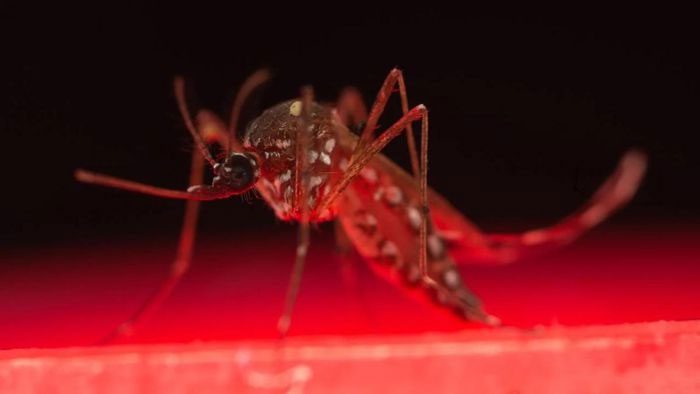With the potential to eliminate over 80% of the Aedes aegypti mosquito population, a mosquito control method utilizing bacteria is currently being tested by Australian scientists and promises to significantly reduce the incidence of dangerous infectious diseases globally transmitted by mosquitoes.
By employing a type of bacteria known as Wolbachia, researchers from the Australian Commonwealth Scientific and Industrial Research Organisation (CSIRO) along with partners have successfully sterilized and drastically reduced the population of Aedes aegypti mosquitoes in the test areas.
 Aedes aegypti is responsible for diseases such as Zika, yellow fever, dengue fever, and chikungunya. (Photo: The Australian).
Aedes aegypti is responsible for diseases such as Zika, yellow fever, dengue fever, and chikungunya. (Photo: The Australian).
The groundbreaking research results announced yesterday (October 5) reveal that scientists successfully sterilized 3 million male mosquitoes and subsequently released them into three areas in northern Queensland, Australia, in 2018. After 20 weeks of testing, the Aedes aegypti population in these areas decreased by more than 80%.
Dr. Brendan Trewin, a researcher involved in the study, stated that if the program is implemented widely and repeatedly, the entire Aedes aegypti population could be completely eradicated.
According to Dr. Trewin, the Wolbachia-based mosquito birth control technique proves to be more effective than the currently used radiation method. To eliminate the majority of the mosquito population, only about 1,500 sterilized male mosquitoes per hectare would be needed, compared to 9,000 irradiated mosquitoes. Additionally, this new mosquito control method does not use chemicals, ensuring no adverse effects on other insect species.
Furthermore, Dr. Trewin mentioned that the sterilization method using Wolbachia bacteria could be adjusted to target the Asian tiger mosquito. Eliminating both of these mosquito types would significantly reduce the incidence of mosquito-borne infectious diseases such as Zika, dengue fever, yellow fever, and chikungunya.
Currently, the research results are being peer-reviewed at the American Academy of Sciences. The research team has also indicated that a partner in the project has engaged with the Singapore government to implement a mosquito control plan in the country.





















































